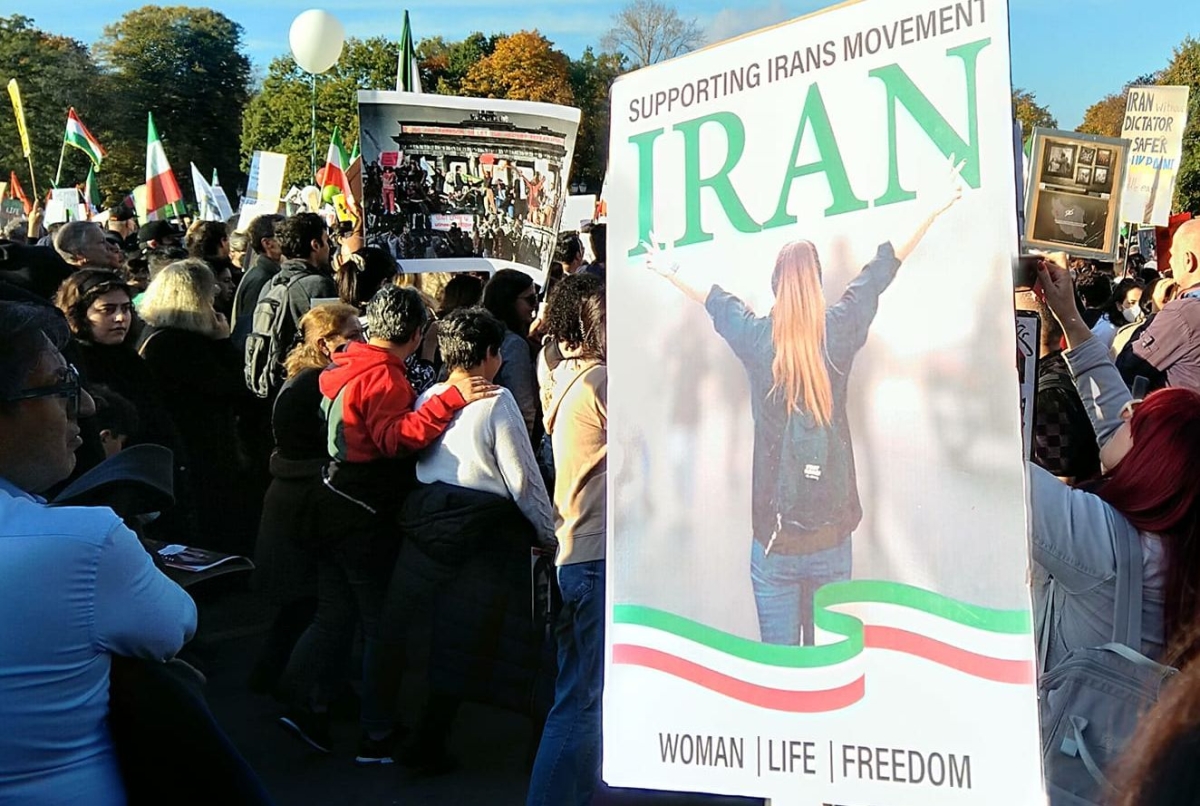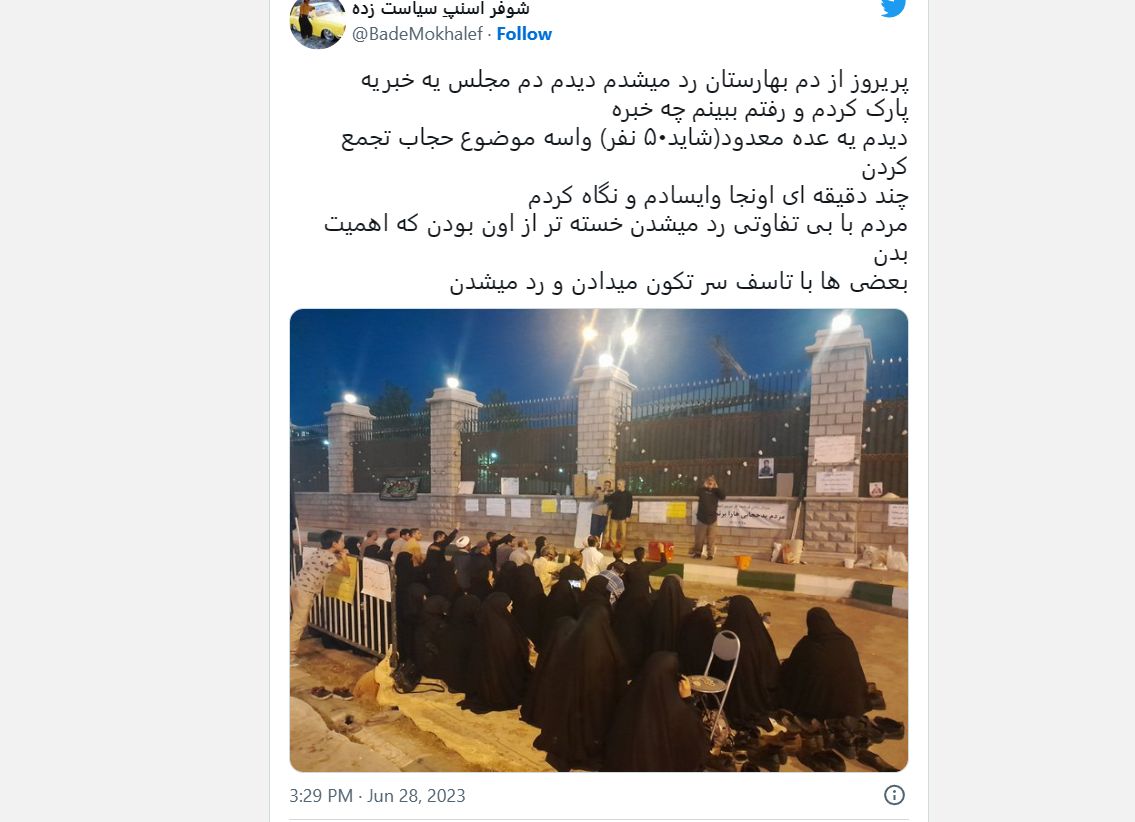Iran: Alltagskrieg ums Kopftuch

Demonstration in Berlin, Bild: Thomas v. der Osten-Sacken
Forderungen nach harten Strafen für Frauen, die den Hijab in der Öffentlichkeit nicht mehr tragen, zeigen, dass das iranische Regime diesen Kampf zu verlieren scheint.
Es vergeht keine Woche mehr im Iran, ohne dass irgendeine Figur des Regimes oder ein Mullah lautstark fordert, dass Frauen, die sich weigern, den Hijab zu tragen, drakonisch bestraft gehören. Doch das zeigt, ebenso wie Maßnahmen der Sittenpolizei, offenbar wenig Erfolge: Seit den "Leben, Frau, Freiheit"-Protesten hat sich im iranischen Alltag viel geändert und inzwischen gehören, so Berichte von Aktivistinnen und Aktivisten aus dem Iran, Frauen, die ihr Haar offen tragen zum Erscheinungsbild in iranischen Städten. Aus Angst vor neu aufflammenden Protesten scheint das Regime faktisch auch weit weniger hart gegen sie durchzugreifen, als seine Anhänger fordern.
Deren Appelle klingen deshalb auch eher fast schon verzweifelt:
Repeating Supreme Leader Ali Khamenei’s decree that being unveiled is “both politically and religiously haram”, Ahmad Khatami, the ultra-hardliner Friday imam of Tehran, told a congregation gathering for special Eid ul-Adha prayers that those who are unveiled aim to weaken the pillars of family life and destroy peace of mind in the society.
“I’m telling those who are unveiled that their defiance of hijab will never become a norm, because it was, is and will be against norms,” Khatami said, complaining that some unveiled women on social media “attack those who wear it”.
“Discarding hijab is haram based on Sharia and also politically,” Khamenei declared in a speech in April. His declaration was a clear signal to officials and his loyalists to do anything it takes to re-establish control over women.
“It is unbearable that those who wear the hijab and their children are assaulted in the Islamic Republic,” Khatami said and urged the authorities to take legal action. “You, authorities who are in charge, [be aware] that assault on women who wear the hijab is a crime. What and who are you waiting for? [Are you waiting for them] to commit a crime and then apologize and say they are sorry for overreacting?”
Irgendwer hatte sogar die Idee, eine pro-Hijab vor dem Parlament in Teheran zu veranstalten, zu der allerdings nicht gerade die Massen strömten, um sich anzuhören, dass wer ohne Kopftuch auf die Straße ginge eine Hure sei. Wie der Autor dieses Tweets voller Spott feststellt, hätten sich gerade einmal Dreißig bei dieser Veranstaltung eingefunden:
